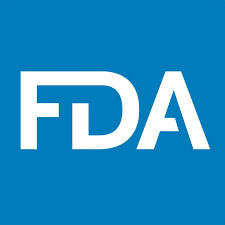预约演示
更新于:2025-07-24

US Food & Drug Administration
更新于:2025-07-24
概览
标签
感染
呼吸系统疾病
Fc融合蛋白
预防性疫苗
疾病领域得分
一眼洞穿机构专注的疾病领域
暂无数据
技术平台
公司药物应用最多的技术
暂无数据
靶点
公司最常开发的靶点
暂无数据
| 疾病领域 | 数量 |
|---|---|
| 感染 | 2 |
| 排名前五的药物类型 | 数量 |
|---|---|
| Fc融合蛋白 | 1 |
| 预防性疫苗 | 1 |
| 排名前五的靶点 | 数量 |
|---|---|
| SARS-CoV-2 S protein(新冠病毒刺突蛋白) | 1 |
关联
2
项与 US Food & Drug Administration 相关的药物靶点- |
作用机制- |
在研适应症 |
非在研适应症- |
最高研发阶段临床前 |
首次获批国家/地区- |
首次获批日期- |
作用机制 SARS-CoV-2 S protein抑制剂 |
在研适应症 |
非在研适应症- |
最高研发阶段临床前 |
首次获批国家/地区- |
首次获批日期- |
181
项与 US Food & Drug Administration 相关的临床试验NCT07001254
Phase II Open-label Clinical Trial Evaluating Efficacy of Romiplostim Added to Standard of Care for Children and Young Adults With Treatment Naive and Relapsed or Refractory Severe Aplastic Anemia
This Phase II open-label interventional clinical trial aims to evaluate the efficacy of romiplostim, in patients with severe aplastic anemia (SAA), both treatment naïve and relapsed/refractory, in inducing trilineage hematopoiesis in children and young adults.
开始日期2025-07-31 |
申办/合作机构  University of Iowa University of Iowa [+2] |
NCT05999383
Understanding the Clinical Pharmacology of Marijuana-Tobacco Co-administration
This is a crossover, randomized, double-blinded clinical pharmacology study enrolling dual cannabis-tobacco smokers to better understand the combined effects of co-administering cannabis and tobacco. The project aims to describe the pharmacokinetics and pharmacodynamics of marijuana-tobacco co-administration by delivering THC and nicotine in various combinations. This foundational study will establish a research program focused on elucidating the public health consequences of marijuana-tobacco co-use.
开始日期2025-06-15 |
申办/合作机构 |
NCT06953726
CSP #2037T - Veterans Affairs Learning Health System Initiative to Assess Novel Screening vs. Usual Care and Treatment With Apixaban vs. Rivaroxaban in Veterans With Atrial Fibrillation (VALIANT-AF-T) Trial
* The trial will compare two anticoagulants ("blood thinners") that are currently used in the VA and are considered standard care to prevent strokes in patients with atrial fibrillation. The two most commonly-used anticoagulants will be compared: apixaban (Eliquis) and rivaroxaban (Xarelto). They are considered by many doctors to have similar benefits and risks, but no one knows for sure.
* The trial only enrolls patients with a diagnosis of atrial fibrillation ("A Fib").
* We will measure, in about 10,000 VA patients nationally, whether the rates of stroke, major bleeding, or death differ between these two drugs.
* The trial will last about 7 years, but after the first prescription, all information will be collected from electronic medical records.
* The trial only enrolls patients with a diagnosis of atrial fibrillation ("A Fib").
* We will measure, in about 10,000 VA patients nationally, whether the rates of stroke, major bleeding, or death differ between these two drugs.
* The trial will last about 7 years, but after the first prescription, all information will be collected from electronic medical records.
开始日期2025-06-02 |
申办/合作机构 |
100 项与 US Food & Drug Administration 相关的临床结果
登录后查看更多信息
0 项与 US Food & Drug Administration 相关的专利(医药)
登录后查看更多信息
19,298
项与 US Food & Drug Administration 相关的文献(医药)2025-12-31·mAbs
Proceedings of the 15
th
European immunogenicity platform open symposium on immunogenicity of biopharmaceuticals
作者: Poyau, Alain ; Kromminga, Arno ; Garidel, Patrick ; Wuttke, Rene ; Loeff, Floris ; Nelson, Robert ; Verthelyi, Daniela ; Pattyn, Sofie ; Minelli, Francesca ; Horling, Frank ; Rosenberg, Amy ; Bloem, Karien ; Johnson, Alison ; Jyamubandi, Issa ; Grudzinska-Goebel, Joanna ; Kramer, Daniel ; Pepermans, Elise ; Maillere, Bernard ; Champion, Lysie ; Pallardy, Marc ; Smith, Noel ; Pedras-Vasconelos, Joao ; Nayak, Vivek ; Tourdot, Sophie ; Saxena, Manisha ; Ichetovkin, Marina ; Reichel, Matthias ; Karle, Anette ; De Groot, Anne S. ; Sauna, Zuben ; Thoo, Lester ; Michaut, Lydia ; Snoeck, Veerle ; Ducret, Axel ; Gutknecht, Michael ; Kurtulmus, Ebru Aydin ; Hickling, Timothy ; Yerly, Daniel ; Nielsen, Morten ; Tovey, Michael
The European Immunogenicity Platform (EIP) celebrated the 15th edition of its Open Symposium on Immunogenicity of Biopharmaceuticals and its associated one-day workshop on 22-24 February 2024 in Lisbon. The meeting attracted experts and newcomers across industry, regulatory agencies, and academia, who actively participated in 3 days of discussion on risk assessment, monitoring, and mitigation of unwanted immunogenicity of biologics. Besides oral presentations, poster sessions were held to maximize scientific exchange and networking opportunities. Therapeutic proteins and emerging gene and cell-based therapies present promising therapeutic options for addressing unmet medical needs or when conventional treatment approaches have failed. Nonetheless, the development of an immune response against these therapeutic agents is a significant concern, as it occurs in a considerable number of cases across various products and indications. The specific anti-drug antibodies that develop can lead to adverse safety events, inhibition of drug activity, or accelerated clearance, all of which result in a loss of treatment efficacy. The EIP serves as a forum for experts and newcomers in the immunogenicity field, fostering discussion among scientists from industry and academia, encouraging interactions with regulatory agencies, and disseminating knowledge and advancements in immunogenicity sciences to the broader scientific community. This report covers the main topics discussed during the EIP 15th Open Symposium on Immunogenicity of Biopharmaceuticals, and the one-day workshop on practical aspects of immunogenicity held prior to the conference. Key topics included immunogenicity testing, clinical relevance of immunogenicity, immunogenicity risk assessment and mitigation, and current regulatory considerations.
2025-12-01·LUNG
Dasatinib-Associated Chylothorax: A Review of Cases Reported to the FDA Adverse Event Reporting System and the Published Literature
Letter
作者: Dores, Graça M ; Nayernama, Afrouz ; Kaland, David A ; Jones, S Christopher
2025-12-01·FOOD MICROBIOLOGY
Independent laboratory validation of a Salmonella loop-mediated isothermal amplification assay in 27 human and animal food matrices of 9 ISO food categories
Article
作者: Pamboukian, Ruiqing Y ; Domesle, Kelly J ; Ge, Beilei ; McDonald, Ryan C ; Young, Shenia R
Improvement in Salmonella screening methods greatly enhances the efficiency of food safety testing programs. This study aimed at extending a Salmonella loop-mediated isothermal amplification (LAMP) assay initially validated in animal food to 27 additional human and animal food matrices through the U.S. Food and Drug Administration (FDA)'s Laboratory Flexible Funding Model (LFFM) collaboration with state agricultural and public health laboratories. These matrices represented nine International Organization for Standardization (ISO) food categories: chocolate, bakery products and confectionary; dried cereals, fruits, nuts, seeds and vegetables; eggs and egg products; environmental samples; fish and seafoods; fresh produce and fruits; infant formula and infant cereals; milk and dairy products; and pet food and animal feed. For each matrix, one of the LFFM laboratories received 30 blinded test portions spiked with low (fractional) or high levels of Salmonella and uninoculated controls. All test portions were processed for Salmonella isolation, according to the FDA's Bacteriological Analytical Manual (BAM) Chapter 5. Overnight enrichments were also screened by LAMP (on one of two platforms). Aerobic plate counts and most probable numbers were obtained for all matrix sets except two environmental surfaces sampled with sponges or swabs. All of the 27 matrices were successfully validated by these independent laboratories as evidenced by clean uninoculated controls (all negative), fractional recoveries (25-75 %), and acceptable relative level of detection (RLOD) values (below 1.5 for a paired study). Extension of the validation of this rapid, reliable, and robust Salmonella LAMP screening method to nine ISO food categories consisting of various human and animal food matrices greatly streamlines the laboratory workflow, which will have a far-reaching impact on food safety and public health once the method is widely adopted.
101,762
项与 US Food & Drug Administration 相关的新闻(医药)2025-07-24
日前,康方生物(9926.HK)自主研发的全球首创PD-1/VEGF双特异性抗体新药依沃西(商品名:依达方®)联合化疗联合/不联合莱法利(CD47单抗)用于一线转移性胰腺癌的关键/注册性III期研究(AK112-310/HARMONi-GI2),已完成首例患者入组。胰腺癌是全球科学家和各类新药开发企业都希望攻克的疾病领域。近年来,尽管免疫治疗在多种实体瘤中展现出显著疗效,但胰腺癌因固有的免疫逃逸特性及高度抑制的肿瘤微环境(TME),致使既往全球范围内免疫疗法针对转移性胰腺癌一线治疗的III期研究均以失败告终,该适应症至今也尚无免疫治疗方案获批。依沃西联合化疗联合/不联合莱法利,有望填补治疗转移性胰腺癌一线免疫疗法的空白。这项针对胰腺癌的随机、对照、多中心III期临床试验,是公司推动依沃西疗法攻克全球重大临床未决需求的行动之一。胰腺癌是一种起病隐匿、进展迅速且预后极差的恶性肿瘤,素有“癌中之王”之称。其全球发病率持续攀升,且死亡率与发病率高度接近,预后极差。流行病学数据显示,2022年全球新发胰腺癌病例约51.1万,死亡约46.7万;中国新发约11.9万,死亡约10.6万。 该病早期诊断困难,约80%患者初诊时即为晚期。即使是早期或局部晚期的患者,在接受手术等治疗后,一年内仍有约70%进展为转移性胰腺癌。目前,国内外指南推荐的一线标准治疗仍以化疗为主,中位生存期(OS)不足一年。PD-1和VEGF在肿瘤微环境中常共表达。 作为PD-1/VEGF双抗,依沃西能富集于肿瘤微环境,同时高效阻断PD-1和VEGF这两条既独立又互补的信号通路,从而增强免疫细胞对肿瘤细胞的杀伤作用。而CD47单抗莱法利则通过与肿瘤细胞上的CD47结合,阻断其与吞噬细胞表面信号调节蛋白α(SIRPα)的相互作用,增强吞噬细胞对肿瘤细胞的吞噬活性,抑制肿瘤生长。依沃西联合/不联合莱法利的治疗方案,有望协同增强抗肿瘤疗效,为胰腺癌的一线治疗提供突破性的免疫治疗方案,填补其免疫治疗空白,迭代治疗方案最终延长患者生存期。复旦大学附属肿瘤医院院长虞先濬教授、浙江省肿瘤医院应杰儿教授和哈尔滨医科大学附属肿瘤医院邰升教授共同担任本研究的共同主要研究者(PI)。说明:本文作为康方生物的新闻发布,用于披露公司最新进展,并非产品推广广告,不构成康方生物的信息披露或投资建议。关于依达方®(PD-1/VEGF双抗,依沃西)依达方®(依沃西单抗注射液)是康方生物自主研发的、全球首创PD-1/VEGF双特异性肿瘤免疫治疗药物。依达方®于2024年5月获得中国国家药品监督管理局批准上市,用于EGFR-TKI治疗进展的局部晚期或转移性nsq-NSCLC,成为全球首个获批上市的“肿瘤免疫+抗血管生成“协同抗肿瘤机制的双特异性抗体新药;同年11月,依达方®及该适应症被纳入2024年国家医保目录。依达方®单药对比帕博利珠单抗单药一线治疗PD-L1表达阳性的晚期NSCLC的III期研究在期中分析中达到了无进展生存期的主要研究终点,获得决定性胜出阳性结果。基于此项研究,依达方®单药一线治疗PD-L1表达阳性的晚期NSCLC适应症获优先审评,并于2025年4月获批上市。依达方®联合化疗对比替雷利珠单抗联合化疗一线治疗鳞状NSCLC的III期临床研究达到无进展生存期(PFS)的主要研究终点,研究结果具有统计学显著获益和重大临床获益。同时,由合作伙伴Summit主导开展的依达方®联合化疗联合化疗用于经第三代EGFR-TKI治疗进展的EGFR突变、局晚期或转移性nsq-NSCLC的国际多中心III期临床研究(HARMONi研究)、依达方®联合化疗对比帕博利珠单抗联合化疗一线治疗鳞状和非鳞状NSCLC的国际多中心III期研究(HARMONi-3研究)和依达方®单药对比帕博利珠单抗一线治疗PD-L1高表达晚期NSCLC的国际多中心临床III期研究(HARMONi-7研究)正在进行中。此外,依沃西新启动4项III期临床研究,包括依沃西联合AK117(CD47)联合方案一线治疗PD-L1阳性头颈鳞癌(vs帕博利珠单抗),依沃西联合方案一线治疗胆道癌(vs度伐利尤单抗联合方案),依沃西联合方案一线治疗三阴性乳腺癌,以及依沃西联合方案一线治疗结直肠癌(vs 贝伐珠单抗+化疗)。另外,依沃西联合方案一线治疗胰腺癌和依沃西方案治疗PD-(1)耐药的NSCLC的III期临床也已入组/筹备中。总体上,依达方®正通过单药和联合用药在包括肺癌、头颈鳞癌、胆道癌、胰腺癌、乳腺癌、肝细胞癌、结直肠癌等18个适应症领域开展了27+项的临床试验,12项为III期临床试验。2025年2月,依沃西国际市场合作伙伴Summit 与美国辉瑞(Pfizer)公司达成临床试验合作,共同推进依沃西联合辉瑞多款抗体偶联药物(ADCs)在多种实体瘤中的联合治疗疗法。关于康方生物康方生物(9926.HK)是一家集研究、开发、生产及商业化全球首创或同类最佳创新生物新药于一体的领先企业。自2012年成立以来,公司始终以患者为中心,以临床价值为导向,打造了独有的端对端康方全方位新药研究开发平台,建立了以Tetrabody双特异性抗体开发技术、抗体偶联(ADC)技术、mRNA技术及细胞治疗技术为核心的研发创新体系,国际化标准的GMP生产体系和运作模式先进的商业化体系,成为了在全球范围内具有竞争力的生物医药创新公司。公司已开发了50个以上用于治疗肿瘤、自身免疫、炎症、代谢疾病等重大疾病的创新候选药物,24个候选药已进入临床(包括15个双抗/多抗/双抗ADC),7个新药已在商业化销售,2个新药2个适应症的上市申请处于审评审批阶段。康方生物是全球迄今唯一拥有2个肿瘤免疫双抗新药的制药公司:2022年6月,公司全球首创的PD-1/CTLA-4双抗开坦尼®获批上市,是全球首个获批的肿瘤免疫治疗双抗新药,也是中国第一个双特异性抗体新药。目前开坦尼®一线治疗胃癌、一线治疗宫颈癌和治疗复发/转移性宫颈癌适应症已获批,8个注册性/III期临床已开展。2024年5月,公司另一全球首创双抗新药依达方®获批上市,用于EGFR-TKI治疗进展的局部晚期或转移性nsq-NSCLC,是全球首个获批的“肿瘤免疫+抗血管生成”机制双抗新药。同期,依达方®在与全球“药王”帕博利珠单抗的随机、双盲、对照一线治疗PD-L1阳性NSCLC的“头对头”III期临床研究中获得显著阳性结果,依达方®可降低患者疾病进展/死亡风险达49%,依沃西成为全球首个在头对头III期临床研究中证明疗效显著优于“药王”帕博利珠单抗的药物。基于该研究结果,依沃西同适应症的sNDA于2025年4月获批上市,成为一线肺癌治疗新的标准治疗方案,为患者提供全新更优的“去化疗”选择。目前依达方®有12项注册性/III期临床已开展,包括3项国际多中心注册性III期临床研究。2024年12月,开坦尼®、依达方®均通过医保谈判被纳入国家新版医保目录。国际市场开发是康方生物核心发展战略,继2015年开中国先河将自主研发的CTLA-4单抗权益许可给默沙东公司之后,2022年12月,公司再次创造中国记录,以50亿美金+2位数百分比销售提成的方案,将依达方®部分海外权益许可给美国Summit公司,该合作创下了彼时中国新药对外许可的最高交易金额记录。2025年2月,Summit 与美国辉瑞(Pfizer)公司达成临床试验合作,共同推进依达方®联合辉瑞多款抗体偶联药物(ADCs)在多种实体瘤中的联合治疗疗法。安尼可®联合方案一线治疗转移性鼻咽癌和单药用以铂类为基础的化疗治疗失败的转移性鼻咽癌两项适应症于2025年4月获得美国食品药品监督管理局(FDA)批准上市。2024年9月,公司自主研发的伊喜宁®(伊努西单抗,PCSK9)治疗高胆固醇血症两项适应症获批,成为非肿瘤领域的首个获批产品。2025年4月,公司独立自主研发的爱达罗®(依若奇单抗,IL-12/IL-23“双靶向”单抗)获得批准上市,用于中重度斑块状银屑病成人患者的治疗。公司非肿瘤领域的产品协同效应和战略组合力进一步提升。康方生物期望通过高效及突破性的研发创新,开发国际首创及同类药物最佳疗法的新药,为全球患者提供更优疾病解决方案,成为全球领先的生物制药企业。往期推荐产品动态一线宫颈癌全人群获批!康方生物开坦尼®获批第三项适应症产品动态依沃西一线治疗NSCLC获批上市(全球首个对比帕博利珠单抗获显著阳性结果的III期研究)产品动态美国重磅上市!派安普利单抗2个适应症获FDA批准上市,用于晚期鼻咽癌治疗产品动态康方生物爱达罗®(依若奇,IL-12/IL-23)治疗中重度斑块状银屑病适应症获批上市临床进展首个自研ADC澳洲临床入组!康方生物IO 2.0+ADC战略再进一步临床进展非肿瘤首个双抗|康方生物全球首创IL-4Rα/ST2(AK139)IND获受理,剑指呼吸系统及皮肤疾病领域临床进展依沃西方案对比替雷利珠方案1L治疗sq-NSCLC的Ⅲ期临床完成患者入组临床进展康方生物古莫奇(IL-17)单抗新药上市申请获NMPA受理数据发布荣登Nature Medicine!卡度尼利方案1L治疗胃癌Ⅲ期研究结果全文发表产品动态康方生物卡度尼利、依沃西纳入2024年国家医保目录临床进展头对头度伐利尤单抗方案,依沃西方案一线治疗胆道肿瘤III期临床完成首例患者入组临床进展全球首个CD47单抗实体瘤III期临床首例入组:依沃西联合莱法利一线治疗HNSCC(对比帕博利珠单抗)数据发布卡度尼利一线宫颈癌III期研究成果荣登《Nature Reviews Clinical Oncology》(影响因子高81.1)数据发布IGCS 2024 LBA & 《柳叶刀》主刊,卡度尼利1L宫颈癌III期研究PFS和OS双阳性结果重磅发布产品动态获FDA快速通道资格!依沃西国际多中心III期研究HARMONi完成入组,2L+EGFRm NSCLC数据发布全球首个对比帕博利珠单抗取得显著阳性结果的随机对照大III期研究——依沃西HARMONi-2重磅研究成果在WCLC发表临床进展康方生物卡度尼利联合方案治疗uHCC的III期临床研究完成首例患者入组临床进展针对PD-1/L1治疗进展晚期胃癌,卡度尼利+普络西(VEGFR-2)联合疗法Ⅲ期临床完成首例入组数据发布ASCO Oral & JAMA主刊丨Ⅲ期HARMONi-A研究重磅公布,依沃西疗法有望改变EGFR-TKI进展肺癌全球治疗标准临床进展史无前例!康方依沃西单药对比帕博利珠1L治疗PD-L1阳性NSCLC的III期临床获决定性胜出阳性结果产品动态康方生物双抗卡度尼利一线治疗晚期宫颈癌全人群的sNDA获CDE受理临床进展国际多中心注册性III期研究HARMONi-3中国启动:依沃西单抗联合化疗对比帕博利珠单抗联合化疗1L治疗sq-NSCLC产品动态高达50亿美金!康方生物与Summit就PD-1/VEGF双抗依沃西达成合作和许可协议产品动态全球首个肿瘤免疫治疗双抗——开坦尼®(PD-1/CTLA-4双抗,卡度尼利)获批上市
免疫疗法临床3期
2025-07-24
·动脉网
2025年6月,美国圣地亚哥的医疗器械新锐Atraverse Medical宣布完成2940万美元A轮融资,本轮融资由Mohan Growth Partners领投。Atraverse 深受资本青睐,成立不足三年,总融资额便已突破4000万美元。在2024年,1250万美元的种子轮融资所得,支撑了其完成FDA临床与早期生产。资本加注的背后,是一项正在改善传统穿刺术的技术创新——Hotwire射频导丝系统,它正试图优化心血管介入手术中基础但危险的关键环节:经房间隔穿刺。传统经房间隔穿刺操作需经历九个关键步骤,如下图: 手术流程图(来源:动脉网制图)整个流程涉及五次以上的器械更换,每次交换都伴随空气栓塞、鞘管滑脱或定位偏差的风险。在手术过程中,遭遇鞘管滑脱或空气栓塞的情况时有发生,平均每次穿刺需要15分钟器械交换时间,器械交换环节导致约30.1%的穿刺相关并发症。在这样的情况下,机械穿刺术却并未得到有效提升。FDA 510(k)数据库显示:2000-2023年间批准的21款穿刺针中,17款(81%)仍基于“机械穿刺+手动交换”原始框架。在已经可实现智能导管精准消融病灶的当下,医生们的穿刺技术却还停留在数十年前。面对传统穿刺术的这一局限,Atraverse Medical用一根导丝实现了技术突破。01一根导丝的智能革命,将穿刺传统流程简化为三步Atraverse Medical的解决方案是Hotwire系统,它能提供更高效、便捷的左心通路操作流程。该系统的精妙之处在于它能将穿刺与导引功能集成于一根智能导丝。Hotwire射频导丝系统由四大核心要件构成:可操控射频导丝、扭矩传递万向节、Sheath Lock通用鞘管适配器以及智能能量控制台。Hotwire射频导丝(来源:官网)基于这一系统,传统穿刺流程被压缩成了三个步骤。首先,医生通过Sheath Lock通用鞘管适配器连接自选鞘管,借助万向节在弯曲血管中推送射频导丝。然后,医生只需轻按手柄按钮,射频能量便通过导丝精准释放,并安全穿透房间隔,最终为后续治疗器械提供稳定的导入通道。02三重突破性优势:射频穿刺、零交换、全兼容除了实现操作步骤的极大简化,该系统还实现了射频穿刺、零交换、全兼容的三重突破。 优势原理示意图(来源:动脉网制图)■ 射频穿刺:摆脱医生手感依赖,减少意外穿孔风险这项技术可有效提高射频设备的响应速度,减少意外穿孔风险。Hotwire基于阻抗的射频能量控制技术。导丝尖端内置的微型传感器能实时监测组织阻抗变化,当检测到阻抗值从心肌组织的约200Ω骤降至血液环境的80Ω时(标志已穿透房间隔进入左心房),系统会在100毫秒内自动切断能量释放。视频穿刺技术还能针对不同厚度隔膜智能调节能量波形参数,使穿刺力波动范围从传统机械针的±15N缩减至±0.5N。这样做的好处是提升电池能量密度的同时保障安全性,实现性能与风险的精准平衡。在临床中,较薄隔膜虽可缩短离子迁移路径、降低内阻并提升能量密度,但过薄会削弱机械强度,增加锂枝晶刺穿风险。而较厚隔膜虽能增强机械保护、减少热收缩隐患,却会延长离子传输路径、增大内阻并降低充放电效率。借助Hotwire的智能射频穿刺技术,医生不再需要凭经验反复试探穿透深度。这一突破解决了因组织差异导致的“手感依赖”问题。■ 零交换:全程无器械暴露,降低空气栓塞概率其二是零交换。Hotwire通过穿刺与导轨功能的物理集成,创造了零交换工作流(全程无器械暴露的连续操作流程)。传统穿刺容易在医生更换器械时发生意外,空气可能窜入血管引发致命栓塞。而Hotwire的零交换设计可以让穿刺成功的导丝直接成为“固定轨道”,后续治疗器械沿其滑入左心房,全程无器械暴露。并且,其特殊设计的镍钛合金材质可直接承受10N轴向负荷。相较于传统不锈钢导丝易弯曲变形,镍钛导丝具有更强的弹性与刚度,可以形成一条无需撤出即可承载导管的安全通道。临床数据显示,即使血管呈90度急弯,导丝也不会像传统产品般扭曲变形,确保封堵器精准到位。■ 全兼容:成功用于130+间隔手术,实现即插即用最后,Hotwire的Sheath Lock专利实现了真正的通用适配。这项专利实现射频导丝与任意市售鞘管的即插即用兼容性。其核心原理是通过专利的锁定机构,在导丝近端与鞘管适配器之间建立物理固定连接,确保操作中导丝与鞘管全程保持同步运动,避免传统导丝因鞘管不匹配导致的滑动、位移或扭矩损耗问题。其可调节卡扣机构能兼容0.032-0.038英寸内径的所有市售鞘管,无论是雅培的Swartz可变弯鞘还是波士顿科学的Agilis可转向系统,Hotwire都能无缝适配。此外,主机内置的智能识别模块能帮助医生实现"即插即用"的临床自由。当导丝接入不同品牌鞘管时,系统自动检测金属导电特性并匹配能量曲线,如不锈钢鞘采用高频模式,编织鞘切换中频。在芝加哥大学医学中心的实测中,医生使用五种不同鞘管操作Hotwire时,导丝近端万向节的自由旋转设计减少了操作过程中的摩擦和阻力,医生施加的旋转力能够更加高效地传递到导丝远端。扭矩传递效率大幅提升。2014年,Hotwire通过FDA批准。据官网,Atraverse的Hotwire在获批一年内已被用于130多个成功的经隔手术,兼容十类市售鞘管系统。03PFA之父创办,产品22个月光速获批Hotwire在22个月内完成从概念形成到FDA获批的快速发展,源于核心团队的特殊基因。创始人Steven Mickelsen博士是脉冲消融(Pulsed Field Ablation,PFA)技术先驱,其创立的Farapulse被波士顿科学收购后,他选择再度出山攻克新难题。首席运营官Eric Sauter手握17项射频技术专利,是Hotwire的首位发明者;首席执行官John Slump曾主导Farapulse的商业转化,创下三年退出的行业纪录。这支具有Farapulse基因的团队,将成熟的监管策略与生物医学研究体系注入Atraverse,使Hotwire在2024年5月获FDA批准后,短短三个月就完成全美顶尖医学中心圣伯纳德医疗中心首例临床手术。目前,Atraverse正在建立专属生产线,计划在2026年实现产能提升500%,为全面市场爆发蓄力。Atraverse的射频导丝已先行进入商业化道路,但其配套的射频主机尚未获得FDA审批。公司预计2025年第二季度递交FDA审批。需要注意的是,Atraverse主机与导丝获批的时间差可能影响系统功能在商业转化上的完整释放。与此同时,巨头们的围猎也已开始——美敦力收购射频穿刺企业Epix Therapeutics,强生加速升级机械穿刺产品线。未来,Atraverse的射频主机能否如期获批将影响Hotwire的商业化进程,我们也将持续关注。如果您想对接文章中提到的项目,或您的项目想被动脉网报道,或者发布融资新闻,请与我们联系;也可加入动脉网行业社群,结交更多志同道合的好友。近期推荐声明:动脉网所刊载内容之知识产权为动脉网及相关权利人专属所有或持有。未经许可,禁止进行转载、摘编、复制及建立镜像等任何使用。文中如果涉及企业信息和数据,均由受访者向分析师提供并确认。动脉网,未来医疗服务平台
加速审批
2025-07-23
·药明康德
LEO Pharma今日宣布,美国FDA已批准Anzupgo(delgocitinib)乳膏(20 mg/g),用于局部治疗对外用糖皮质激素应答不佳或不适合使用糖皮质激素的中重度慢性手部湿疹(CHE)成人患者。根据新闻稿,Anzupgo乳膏是专门用于治疗中重度慢性手部湿疹成年患者的首个获FDA批准的疗法。CHE是一种异质性、反复发作的炎症性皮肤病,全球大约每十位成人中就有一人受其影响,主要症状包括瘙痒和疼痛。其病理生理学特征为皮肤屏障功能障碍、皮肤炎症和皮肤微生物群改变,可严重干扰日常生活。该病可能为患者带来很大的心理、社会和职业负担。之前公布的DELTA 1和DELTA 2两项临床3期试验,评估了Anzupgo相较于安慰剂用于治疗CHE的安全性和疗效。治疗成功定义为研究者整体评估的慢性手部湿疹治疗成功(IGA-CHE TS)评分为0(皮损清除)或1(皮损几乎清除),且较基线至少提高两级。图片来源:123RF试验数据显示,在第16周时,Anzupgo治疗组与载体对照组相比,有更大比例的患者达到IGA-CHE治疗成功的标准。DELTA 1中Anzupgo治疗组达到治疗成功标准的患者比例为20%,对照组为10%。在DELTA 2中Anzupgo治疗组达标的患者比例为29%,对照组为7%(两项试验均p≤0.0055)。报告不良事件的患者比例在Anzupgo治疗组和载体对照组中相似,发生率至少为2%的最常见不良事件在两组中相似,包括COVID-19和鼻咽炎。Anzupgo是一款“first-in-class”的外用泛JAK抑制剂,可抑制造成慢性炎症皮肤疾病病变的JAK-STAT信息通路的活化。Anzupgo在去年已经获得欧盟监管机构的批准,用于治疗CHE。参考资料:[1] LEO Pharma Announces FDA Approval of ANZUPGO® (delgocitinib) Cream in the U.S. Retrieved July 23, 2025 from https://www.businesswire.com/news/home/20250723974453/en/LEO-Pharma-Announces-FDA-Approval-of-ANZUPGO-delgocitinib-Cream-in-the-U.S.免责声明:本文仅作信息交流之目的,文中观点不代表药明康德立场,亦不代表药明康德支持或反对文中观点。本文也不是治疗方案推荐。如需获得治疗方案指导,请前往正规医院就诊。版权说明:欢迎个人转发至朋友圈,谢绝媒体或机构未经授权以任何形式转载至其他平台。转载授权请在「药明康德」微信公众号回复“转载”,获取转载须知。分享,点赞,在看,聚焦全球生物医药健康创新
上市批准临床结果临床3期
100 项与 US Food & Drug Administration 相关的药物交易
登录后查看更多信息
100 项与 US Food & Drug Administration 相关的转化医学
登录后查看更多信息
组织架构
使用我们的机构树数据加速您的研究。
登录
或

管线布局
2026年03月01日管线快照
管线布局中药物为当前组织机构及其子机构作为药物机构进行统计,早期临床1期并入临床1期,临床1/2期并入临床2期,临床2/3期并入临床3期
临床前
2
4
其他
登录后查看更多信息
当前项目
| 药物(靶点) | 适应症 | 全球最高研发状态 |
|---|---|---|
鼻内新冠疫苗(Food and Drug Administration) | 冠状病毒感染 更多 | 临床前 |
ACE2-Fc(FDA) ( SARS-CoV-2 S protein ) | 新型冠状病毒感染 更多 | 临床前 |
二氯乙酸 ( PDHK ) | 丙酮酸脱氢酶复合物缺乏症 更多 | 无进展 |
ZEBOVGP-Fc | 埃博拉病毒性疾病 更多 | 无进展 |
DMC-209 ( MUC1 ) | 肿瘤 更多 | 无进展 |
登录后查看更多信息
药物交易
使用我们的药物交易数据加速您的研究。
登录
或

转化医学
使用我们的转化医学数据加速您的研究。
登录
或

营收
使用 Synapse 探索超过 36 万个组织的财务状况。
登录
或

科研基金(NIH)
访问超过 200 万项资助和基金信息,以提升您的研究之旅。
登录
或

投资
深入了解从初创企业到成熟企业的最新公司投资动态。
登录
或

融资
发掘融资趋势以验证和推进您的投资机会。
登录
或

生物医药百科问答
全新生物医药AI Agent 覆盖科研全链路,让突破性发现快人一步
立即开始免费试用!
智慧芽新药情报库是智慧芽专为生命科学人士构建的基于AI的创新药情报平台,助您全方位提升您的研发与决策效率。
立即开始数据试用!
智慧芽新药库数据也通过智慧芽数据服务平台,以API或者数据包形式对外开放,助您更加充分利用智慧芽新药情报信息。
生物序列数据库
生物药研发创新
免费使用
化学结构数据库
小分子化药研发创新
免费使用
